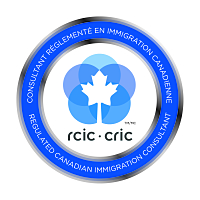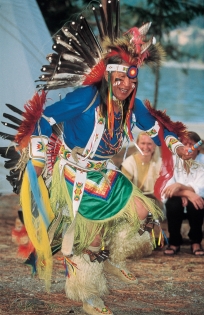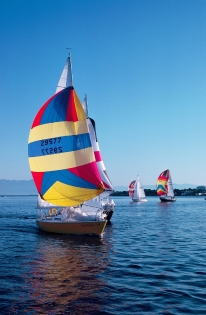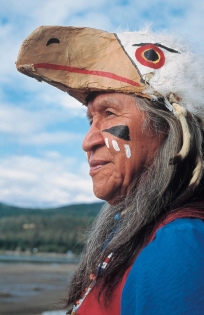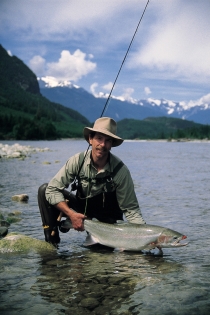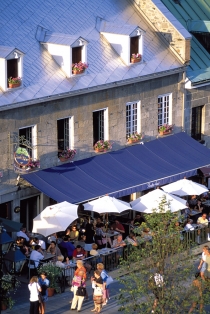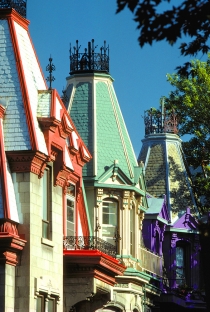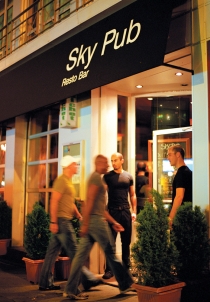Permanent resident services
- What is a Permanent resident service
- Certificat de sélection du Québec (CSQ – Quebec selection certificate)
- Certificat de sélection du Québec (CSQ – Quebec selection certificate) under the Programme de l’expérience québécoise (PEQ – Quebec experience program)
- Arranged employment opinion (AEO)
- Provincial nomination certificates
- Travel document
- Permanent resident card (initial issuance, replacement or renewal)
- Admissibility criteria
- What is the next step
1. What is a Permanent resident service
A permanent resident service is basically an option, a status, a document, an authorisation or a certification that is related to and/or required in order to obtain one of the existing permanent resident visas. Thus, this Web page deals with all those particular situations in which future permanent residents or people who already own a Canadian permanent resident visa would necessitate extra assistance in obtaining a specific document and/or other particular authorisation/certification without which obtaining their permanent resident visa or re-entering in Canada would not be possible. VisaPro.ca offers all these professional services, should our client’s special circumstances and situation require them.
The different categories of permanent resident services offered are described here below.
The Canada-Quebec Accord is an agreement, signed in 1991, which specifies that [the province of] Quebec is solely responsible for the selection of applicants destined to the various regions and cities of Quebec. On the other hand, federal responsibility under the Canada-Quebec Accord is to assess an applicant’s admissibility and issue temporary or permanent resident visas. Therefore, a visa officer may refuse applicants even if they have already been selected by Quebec in case they prove to be inadmissible. Likewise, the visa officer will not issue a temporary or a permanent resident visa to applicants destined to Quebec who have not met Quebec’s selection criteria even if these applicants would have been deemed admissible according to federal requirements.
The certificat de sélection du Québec (CSQ – Quebec selection certificate) is issued by the Government of Quebec to applicants who will adapt well to living in that province. It is required for all applicants who intend to reside exclusively in Quebec.
The current labour market in Quebec is characterised by rapid transformations which require high adaptability of the workforce. By making the obtention of a CSQ mandatory, the Government of Quebec keeps a tight control on its immigration, allowing him to closely monitor the achievement of the preset immigration levels and more importantly, to favour primarily the selection of young families, French speaking individuals and persons trained in areas of occupations in high demand in Quebec.
Generally speaking, applicants who intend to reside exclusively in Quebec can apply under three categories of permanent resident visa after they obtained the required CSQ: Quebec skilled worker class, business immigration class and family sponsorship. Although the same CSQ is required in all three cases, the selection criteria for such CSQ might vary depending on the permanent resident visa applied for. For instance, the selection criteria for a CSQ to be paired with a permanent residence application under the family sponsorship category are totally different from the selection criteria for a CSQ to be paired with a permanent residence application under one of the other two suitable categories.
To obtain a CSQ that will allow them to apply for a permanent resident visa under either the Quebec skilled worker class or the business immigration class, applicants must successfully score a minimum of points (be it with or without a spouse or common-law partner). Ten factors are usually considered when evaluating an application for a CSQ: education, work experience, age, language proficiency, visits to and family ties with Quebec, spousal characteristics, proof of a validated job offer in Quebec, family configuration in regard to children, financial autonomy, and adaptability.
In all cases, applicants must possess the financial resources to meet their basic needs (and those of their family members if accompanying) during a specified period of time. To this end, signing a contract on financial self-sufficiency is required. Finally, it is important to note that the CSQ is issued for a definite period of time; consequently, it is vital to apply for permanent residence in Canada under the suitable category as soon as the CSQ has been received.
French language has always been your favourite seminar in school? You have valuable foreign experience as a heavy-duty equipment mechanic and you’d like to work and settle in Rimouski? You’ve been working as a fishmonger in Gaspé for the last couple of years under a temporary resident visa and you’d like to finally obtain your permanent residence status? Then you need a CSQ and we can help you determine if you are experienced in an area of occupations in high demand and assist you in getting your CSQ quickly. Please check below our Admissibility criteria for more details.
- Certificat de sélection du Québec (CSQ – Quebec selection certificate) under the Programme de l’expérience québécoise (PEQ – Quebec experience program)
The Canada-Quebec Accord is an agreement, signed in 1991, which specifies that [the province of] Quebec is solely responsible for the selection of applicants destined to the various regions and cities of Quebec. On the other hand, federal responsibility under the Canada-Quebec Accord is to assess an applicant’s admissibility and issue temporary or permanent resident visas. Therefore, a visa officer may refuse applicants even if they have already been selected by Quebec in case they prove to be inadmissible. Likewise, the visa officer will not issue a temporary or a permanent resident visa to applicants destined to Quebec who have not met Quebec’s selection criteria even if these applicants would have been deemed admissible according to federal requirements.
The certificat de sélection du Québec (CSQ – Quebec selection certificate) is issued by the Government of Quebec to applicants who will adapt well to living in that province. It is required for all applicants who intend to reside exclusively in Quebec. Applications for a CSQ are usually assessed according to a standardised points grid.
Alternatively, candidates could also be issued a certificat de sélection du Québec (CSQ – Quebec selection certificate) under the programme de l’expérience québécoise (PEQ – Quebec experience program). The PEQ is an accelerated selection platform for skilled workers which came into effect on February 14, 2010. This category has been specifically designed for temporary foreign workers who hold a skilled job in Quebec, or for foreign students who graduated from a Quebec educational institution or who will soon graduate from a Quebec educational institution (Quebec graduates).
Some of the eligibility conditions are different for temporary foreign workers and Quebec graduates. To be eligible, the temporary foreign worker must have a valid temporary foreign worker status, one year of full-time experience in Quebec at a technical, professional or management level during the two years preceding the application submission, and hold such an occupation at the time the application is submitted.
On the other hand, to be eligible for this category, the Quebec graduate or future Quebec graduate must have conformed to his conditions as a foreign student and hold a Quebec diploma or expect to complete his study program within six months of the date on which his application is submitted. The diploma or degree must be issued by a university or by a public or private educational institution located in Quebec and recognized by the Ministère de l’Éducation, du Loisir et du Sport (MELS – Quebec Ministry of Education, Recreation and Sports).
What is common for both temporary foreign workers and current/future Quebec graduates, however, is that candidates must be at least 18 years old, intend to settle and hold a job in Quebec, undertake to provide for their financial needs (and, if applicable, for their accompanying dependent family members) for a minimum period of three months from the date the permanent resident status is granted to them, and have an intermediate level knowledge of oral French. In any case, if an applicant wishes to apply for a CSQ under the PEQ, either a study permit or a work permit must inevitably have been obtained somewhat recently by the applicant depending if he studied or worked in Quebec.
The PEQ greatly simplifies and accelerates the process for obtaining the CSQ; it is therefore a very efficient platform for suitable applicants. Finally, it is important to note that the CSQ is issued for a definite period of time; consequently, it is vital to apply for permanent residence in Canada under the Quebec skilled worker class as soon as the CSQ has been received.
You are set to complete your Bachelor’s degree in Chemical engineering at McGill University in the next 3 months and you’d like to settle permanently in Montreal as soon as possible? You have been working as an ébéniste (cabinetmaker) in Trois-Rivières for the last 18 months with a work permit, you are fond of the place and the people and you wish to launch and manage your own workshop? Then you need a CSQ and we can help you determine if you qualify under the Quebec experience program (PEQ) and assist you in getting your CSQ quickly. Please check below our Admissibility criteria for more details.
The arranged employment opinion (AEO) pertains only to candidates applying under the federal skilled worker class who want to settle and work in Canada, outside of [the province of] Quebec. As part of the permanent resident application process, Human Resources and Skills Development Canada (HRSDC) provides an AEO on the submission of an “arranged employment application for skilled workers” by an employer who has made a job offer to support a foreign national's application for permanent residence. The job offer must be permanent, full-time, non seasonal and it must be a genuine offer of employment specifically under the federal skilled worker class.
An AEO does not result in a work permit and does not allow the person to work in Canada. A work permit is a temporary resident visa and in that case a labour market opinion (LMO), not an AEO, would be needed to support the work permit application. On the contrary, an AEO document is only valuable to someone who wants to immigrate to Canada permanently. Generally speaking, there are two main incentives for an applicant to seek to obtain an AEO. First, a permanent resident visa application supported with an AEO is usually processed quicker compared to other applications under the federal skilled worker class not supported with an AEO. Second, once an AEO has been obtained by an applicant, the position specified in that AEO becomes strictly reserved for him and cannot theoretically be filled by someone else.
You got a once in a lifetime job offer as an environmental scientist from your current employer based in spectacular Baffin Island, Nunavut, and you want to know if you are eligible to apply for an arranged employment opinion? You represent a major potash mining employer from Regina, Saskatchewan, and you need assistance with the AEO applications of your future top-notch employees? If so, we can assist you in getting the required AEO and later on, the valuable permanent resident visas; please check below our Admissibility criteria for more details.
 © Most provinces and territories in Canada have an agreement with the Government of Canada that allows them to nominate immigrants who wish to settle in that province or territory. The provinces and territories participating in such agreement are the following: Alberta, British Columbia, Manitoba, New Brunswick, Newfoundland and Labrador, Nova Scotia, Ontario, Prince Edward Island, Saskatchewan, Northwest Territories, and Yukon. Hereafter in this section, the word province refers to both provinces and territories of Canada.
© Most provinces and territories in Canada have an agreement with the Government of Canada that allows them to nominate immigrants who wish to settle in that province or territory. The provinces and territories participating in such agreement are the following: Alberta, British Columbia, Manitoba, New Brunswick, Newfoundland and Labrador, Nova Scotia, Ontario, Prince Edward Island, Saskatchewan, Northwest Territories, and Yukon. Hereafter in this section, the word province refers to both provinces and territories of Canada.
Provincial nomination certificates are issued by the government of a province, under a provincial nomination agreement, to applicants who intend to settle in that province. Such provincial nomination agreements enable the participating provinces to select immigrants who have specific skills that would contribute to their provincial economic and social development.
Provinces have the authority and responsibility to establish their own criteria for nomination. Thus, each province has developed its own set of rules and requirements specified in its provincial nomination platform. To be considered, an applicant must not only meet the requirements set by the province he opted for, but he must also demonstrate a genuine intention to settle permanently in that province. If successful, the applicant selected under the provincial nomination platform will receive a specific provincial nomination certificate from that province. Provincial nomination certificates are issued for a definite period of time which varies from province to province; hence, it is vital to apply for permanent residence in Canada under the provincial nominees category as soon as the provincial nomination certificate has been received. Finally, it is also important to note that some provinces specify a certain period of time during which applicants are legally restricted from working outside the province they opted for, thus making the choice of a specific province or territory even more critical for applicants.
You got a dream job offer as an architect from an innovative firm based in St-John’s and you want to know if you are eligible to apply for a Newfoundland and Labrador provincial nomination certificate in order to acquire permanent residence status? You represent a major Canadian bank based in Toronto and you need assistance with the applications of your future branch managers for the obtention of their Ontario provincial nomination certificates? If so, we can help you identify the most beneficial provincial nomination certificate for you or your future employees and assist you in getting the required permanent resident visas quickly. Please check below our Admissibility criteria for more details.
A travel document is an official authorisation issued to a permanent resident who is outside Canada and needs to prove his status upon his return to Canada.
As a rule, the permanent resident visa affixed in the passport and its correlated immigration documentation (e.g. record of landing, confirmation of permanent residence or returning resident permit) are not valid for travel back (return) to Canada. Owners of such documents must present either a permanent resident card or a valid travel document to re-enter Canada. To obtain a travel document, one must prove his identity, his permanent resident status and must meet the usually required residency obligation. The travel document is issued only for a single entry to Canada.
Once in Canada, all permanent residents should apply for a permanent resident card. Unlike the travel document, the permanent resident card allows the permanent resident to enter Canada multiple times without having to obtain a new travel document each time.
You have been granted Canadian permanent residence status 2 months ago, but even before you received your permanent resident card through postal service you had to leave Canada to take care of personal business in your home country. Meanwhile, files are piling-up at the office and you need to come back to Montreal in the next few days. Then you need to obtain a travel document to be allowed to travel back to Canada and we can assist you in getting one quickly. For more details concerning the eligibility or for any other specific information, please do not hesitate to Contact us.
To proceed further, please discover What is the next step.
A permanent resident card is a document required by permanent residents, including children, who are planning on travelling outside of Canada and then returning to Canada either by their own means (by car, bicycle, etc.) or by any commercial carrier such as plane, train, boat or bus. The permanent resident card is the official proof of a person’s status as a permanent resident in Canada. One is eligible for a permanent resident card only if he has been granted permanent resident status. Since June 2002, all new permanent residents automatically receive their initial (first) permanent resident card as part of the immigration process.
This category is meant for permanent residents within Canada who would like to apply for an initial permanent resident card (e.g. if one became a permanent resident after June 28, 2002 but did not receive a permanent resident card at that time), for the renewal of a permanent resident card that has or will soon expire, for the replacement of a permanent resident card that must be updated (to correct a wrong/misspelled name, to correct a wrong date of birth or to reflect their new name) or for the replacement of a permanent resident card that has been lost, stolen, damaged, destroyed or never received.
Unlike the travel document, the permanent resident card allows the permanent resident to enter Canada multiple times without having to obtain a new travel document each time. Once in Canada, all permanent residents should therefore apply for a permanent resident card. The permanent resident card expires every five years; before planning to travel outside Canada, one should check the expiry date of his permanent resident card, and should obtain one before exiting Canada in case this card is set to expire before the planned re-entry date in Canada. Once a permanent resident becomes a Canadian citizen, a permanent resident card is not required anymore.
You became a permanent resident a couple of years ago and moved to Fredericton, New-Brunswick, but never received a permanent resident card? You’ve been living and moving back and forth between your apartment in Calgary and your native country for work purpose since several years. However, for your next trip you will have to extend your stay outside of Canada and your permanent resident card is set to expire, so you need to renew it before leaving? You’ve just arrived home from a 2 weeks vacation under the Caribbean sun and noticed that your permanent resident card has been stolen/lost on your way back from the airport? Then you need to obtain a permanent resident card and we can assist you in getting one quickly. For more details concerning the eligibility or for any other specific information, please do not hesitate to Contact us.
To proceed further, please discover What is the next step.
2. Admissibility criteria
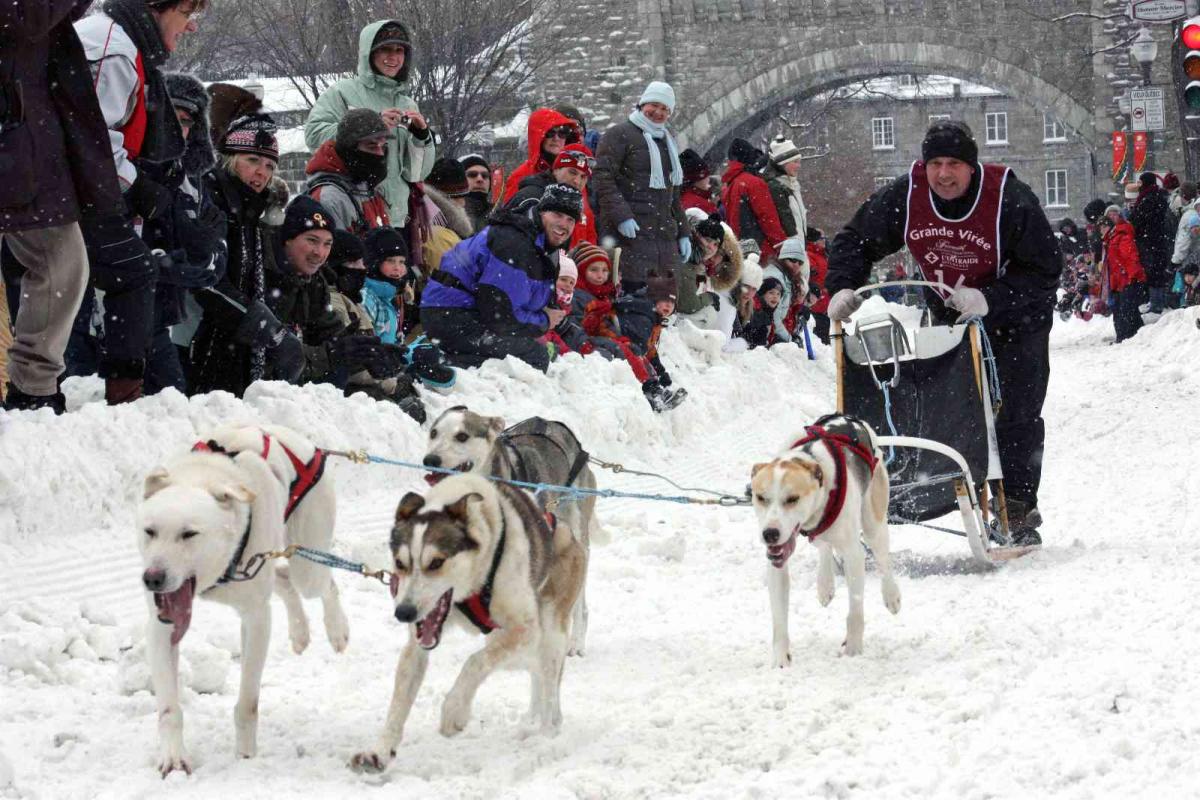 © All individuals who wish to enter Canada, as permanent or temporary residents, must meet the requirements of the Immigration and Refugee Protection Act and its regulations. Canadian immigration authorities retain exclusive powers and rights to make the final decision on any application using existing admissibility criteria, including security, criminal, and medical factors.
© All individuals who wish to enter Canada, as permanent or temporary residents, must meet the requirements of the Immigration and Refugee Protection Act and its regulations. Canadian immigration authorities retain exclusive powers and rights to make the final decision on any application using existing admissibility criteria, including security, criminal, and medical factors.
These admissibility criteria are applicable without exception to all candidates who want to come to Canada. If any of the following examples apply to your case, it will constitute an inadmissibility factor that could render inadmissible your application:
- Inadmissible medical status
- Presence of criminal record or evidence of threat to Canada’s national security
- Insufficient funds to sustain living expenses and/or unavailability of adequate settlement funds
- Misrepresentation through withhold and/or distortion of facts and/or production and/or use of fake documents
- Non-compliance with the visa/immigration officers instructions
- Change in family composition and/or marital status, without noticing the Canadian immigration authorities in due time
Obviously, many more admissibility criteria may or may not apply depending on the type of status/document sought. In addition to the admissibility criteria, the eligibility criteria for each specific category of temporary or permanent residents must also be met. This is why it is vital to fully understand the Immigration and Refugee Protection Act and its regulations in order to maximize your chances. VisaPro.ca, thanks to its extended experience in the domain and its competent team, can help you and make the difference between a successful application and a refusal.
3. What is the next step
Once you’ve chosen the categories of services* under which you wish to apply, your next step is to select one of our Solution packages. VisaPro.ca personalised approach gives you the choice between 4 different flat fee Solution packages; depending on what combination of professional service and Solution package you need, the flat fee will vary accordingly.
N.B.Got lost? Check our Sitemap to find your way back!
Got puzzled with terms? Check our FAQ to get back on track!
* For each category of applicant corresponds a specific type of official document. VisaPro.ca offers a wide range of professional services corresponding to each of these categories. All existing categories of visa/immigration and citizenship services fall under one of these 5 programs: Temporary resident visas, Temporary resident services, Permanent resident visas, Permanent resident services and Canadian citizenship
Last update: 2011-03-04
© 2010-2011 VisaPro.ca - CIC. All Rights Reserved
This Web site is optimised for Firefox, Google Chrome and Internet Explorer 8


